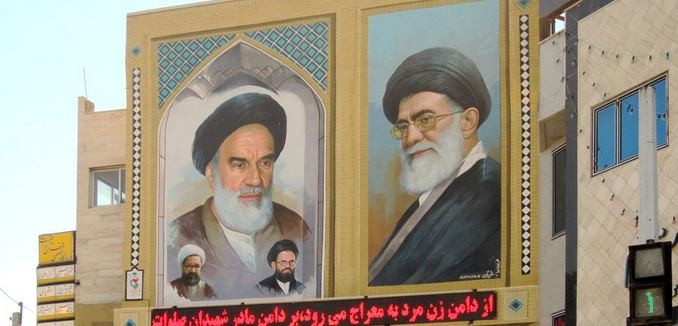An article (Persian link) published in the influential Persian-language Iranian website Alef claimed that Jews are “human history’s most bloodthirsty people.” The article provided “evidence” based on “historical events” drawn from some of the most infamous blood libels in Europe, which were previously used to justify the mass killings of Jews. Alef is owned by Ahmad Tavakkoli, a member of Iran’s parliament and a cousin to Mohammad Javad Larijani, the secretary of Iran’s Human Rights Council; Sadeq Larijani, the Chief Justice of Iran; and Ali Larijani, the powerful speaker of Iran’s parliament.
The article pushes the classic lie that Jews require human blood for the baking of matzahs for Passover, and acquire it by sacrificing the children of their enemies. More generally, the article repeats the libel that throughout history, Jews murdered Christian children during the celebration of their various holidays. It also claims that those performing ritual Jewish circumcision suck the blood of Jewish infants and cause them harm.
In his analysis of the article, Mehdi Khalaji, a fellow at the Washington Institute for Near East Policy, explained how anti-Semitism has become an influential ideology of revolutionary Iran.
Although anti-Judaism is well known in Iranian Islamic tradition and literature (even in the works of well-known classical poets such as Saadi), this is fundamentally different from modern anti-Semitism, which was imported into Iran by leftist and Islamist intellectuals and political activists before and after the 1979 revolution. Secular intellectuals were heavily influenced by anti-Semitic trends in Europe and the Soviet Union, while Islamists were influenced by the Muslim Brotherhood and other Arab anti-Semitic writers. In addition, some Iraqi Shiite clerics transmitted anti-Semitic literature from the Arab world to Iran. For instance, Sayyed Muhammad Shirazi — head of the Shirazi family, who are known for their ultraconservative tendencies and run dozens of satellite television networks, websites, organizations, and mosques in the United States, Europe, and the Middle East — published several anti-Semitic books in the 1960s. One of these, titled The World As Jews’ Plaything, was translated by Sayyed Hadi al-Modarresi, an Iraqi cleric who is now a Shiite religious authority (marja).
Judaism is an official minority religion in the Islamic Republic, and Jews have a representative in the parliament and are free to practice their religion in synagogues across the country, including in Tehran — a city whose hundreds of thousands of Sunni residents are not allowed to have a mosque of their own. Nevertheless, Iranian officials are known to make implicitly and explicitly anti-Semitic statements against Israel and Jews, and the government makes no effort to curb anti-Semitic propaganda by local extremists. In the past, such statements were generally political, with some element of the traditional Muslim complaints about Jews falsifying God’s message and rejecting the true prophet Muhammad. Since 1979, however, the spread of more primitive anti-Semitic lies has increased, especially the blood libel. Googling such accusations in Persian turns up many related articles, particularly on apocalyptic websites. More disturbingly, the blood libel has been creeping into mainstream media for some time, with occasional statements made by commentators on important websites or even state television. Although no Iranian officials have made such statements, none of them have reacted to the spread of this libel, including this week’s prominent Alef article. Similarly, no Iranian clerics have denounced this libel against what is officially regarded as a divine religion, i.e., Judaism.
In today’s Iran, anti-Judaic and anti-Semitic discourses are sometimes mixed in textbooks, media, religious/political propaganda, and secular intellectual literature. This helps the regime justify its anti-Israeli agenda in the region, casting Jews as genuine enemies who do not want to see the Islamic Republic progress, especially with regard to nuclear technology. What matters most is that such mixed discourse cannot easily be criticized inside Iran by those intellectuals who are concerned about the long-term negative ramifications of anti-Jewish sentiment.
Ayatollah Ruhollah Khomeini, the previous Supreme Leader of the Islamic Republic, publicly denounced and demonized the Jews, referring to them as “infidels” and “impure creatures.” Since the Islamic Revolution in 1979, Iran’s leading clerics and politicians have consistently denounced Israel, calling for its destruction.
[ Photo: David Stanley / Flickr ]




